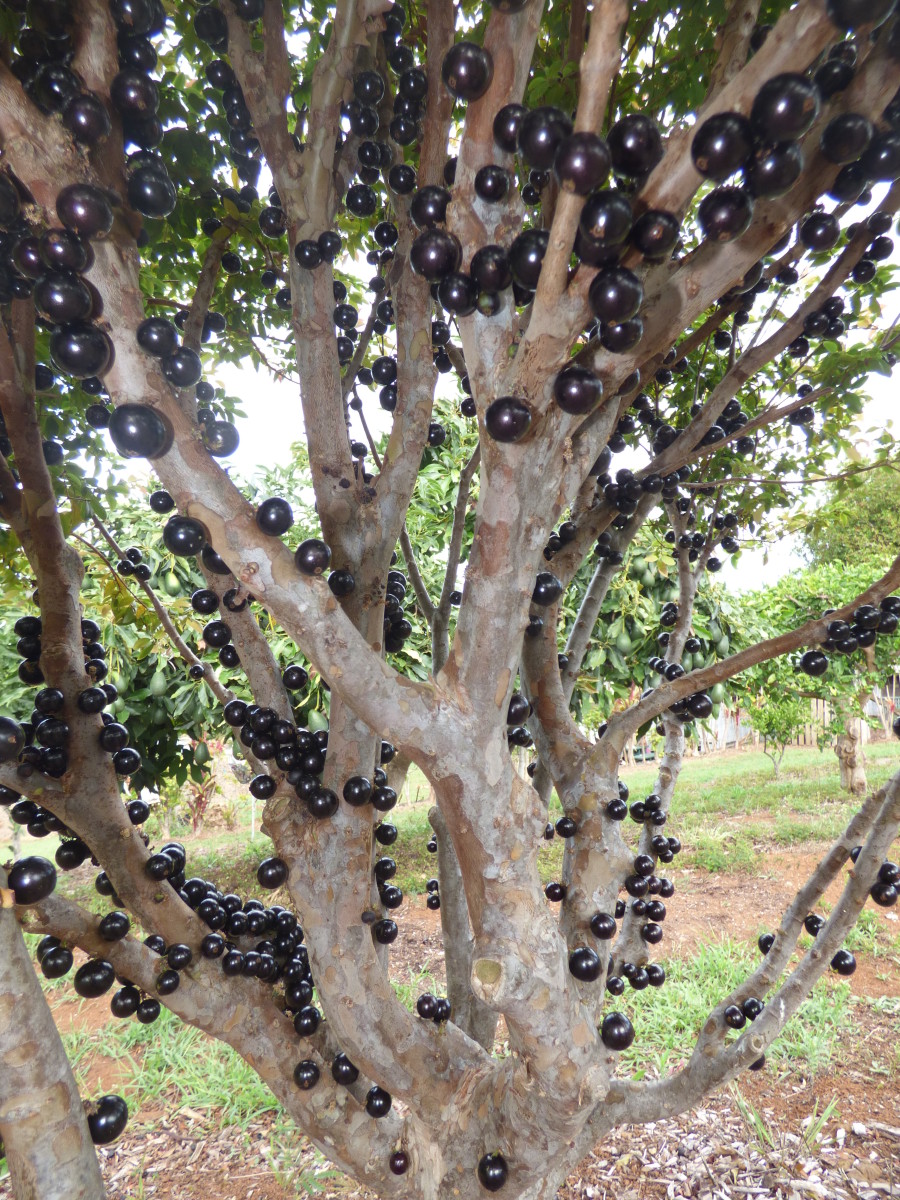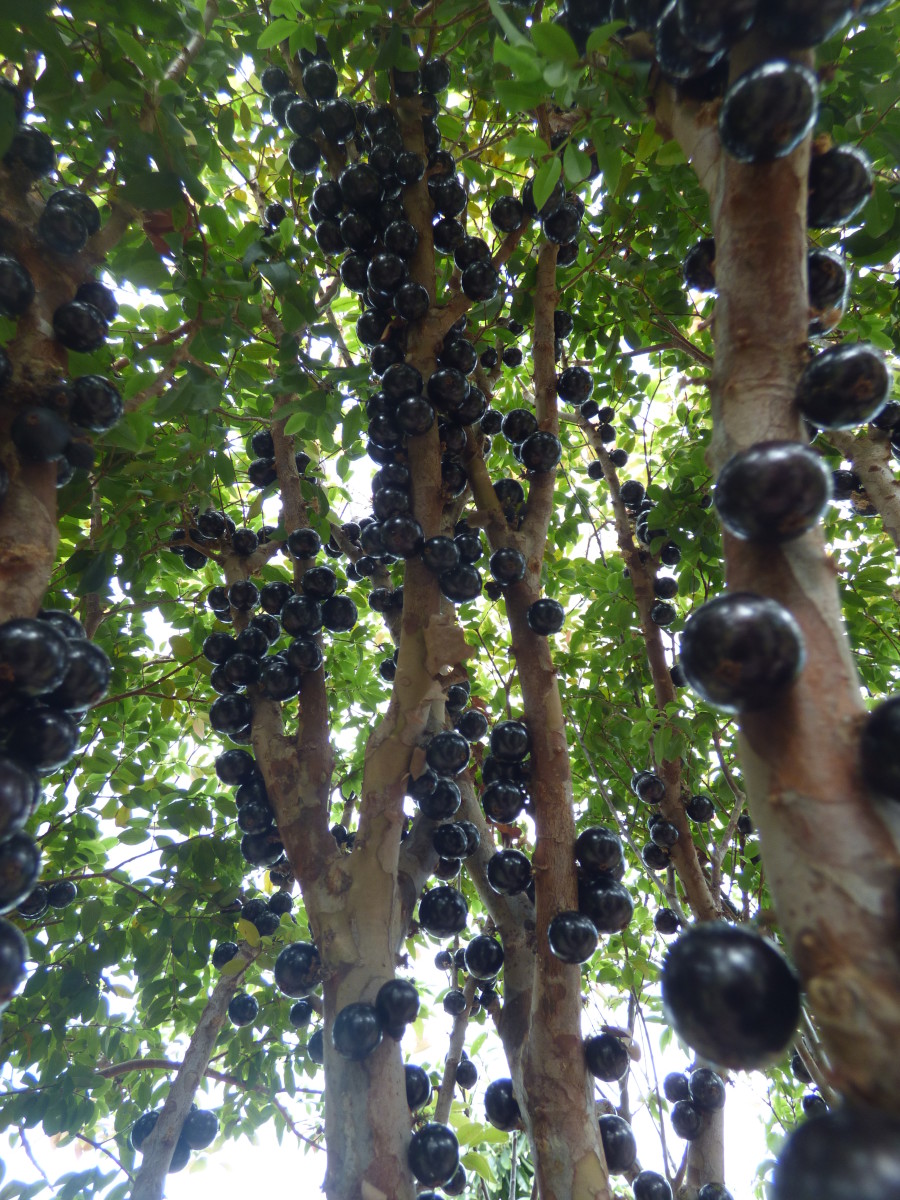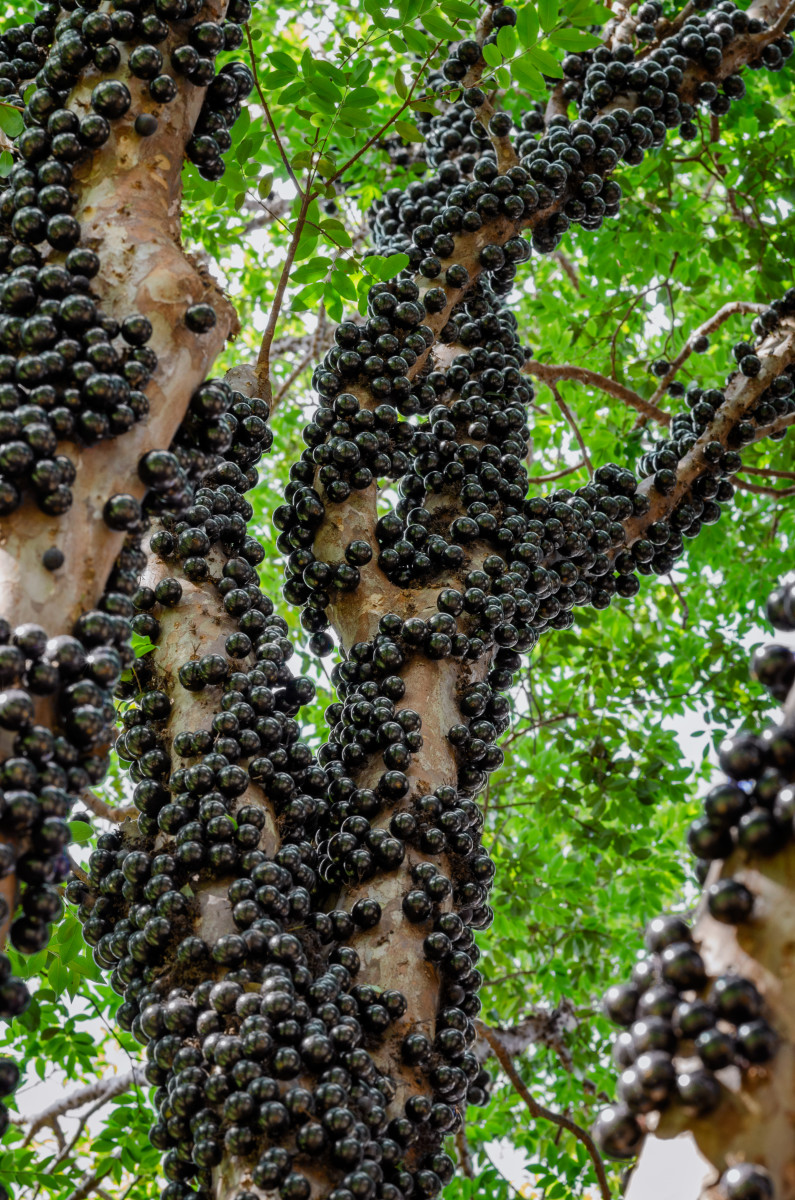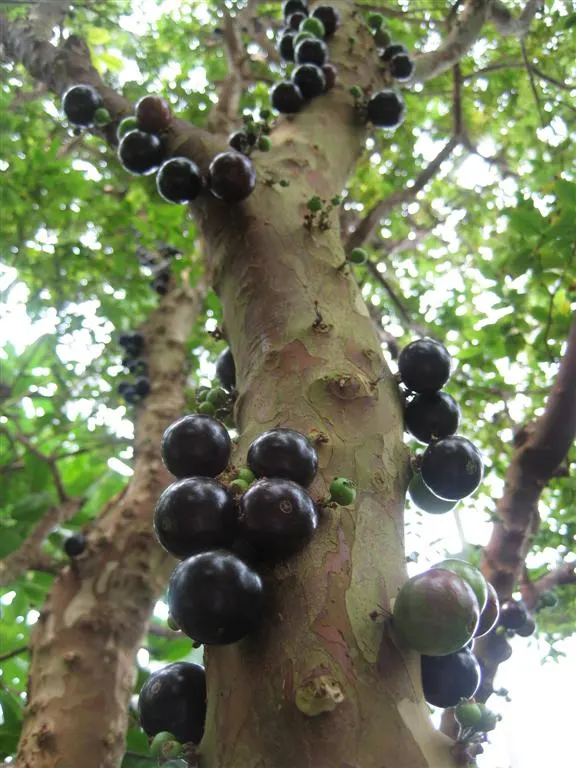On social media platforms, captivating images of a remarkable South American tree have been making waves. While such exotic marvels may not grace our local landscapes, the familiar sight of an apple tree in our backyard remains a cherished delight.
However, in South America, nature offers the extraordinary jabuticaba tree, bearing fruits akin to Brazilian grapes directly on its trunk. These purplish gems provide versatility, suitable for raw consumption or for crafting jellies, jams, juices, and even wine.
Belonging to the Myrtaceae family, these unique trees thrive in the Brazilian states of Rio de Janeiro, Goiás, and São Paulo, with related species found in Argentina, Paraguay, Bolivia, and Peru.

The name “jabuticaba” derives from the Tupi words jaboti/jabuti (meaning tortoise) and caba (meaning place), signifying “the place where tortoises are found.” The fruit’s distinctive white pulp has led to interpretations likening it to “turtle fat.”
The appearance of these trees has captivated many, as their fruit grows not on branches but all along the trunk. In some instances shared on social media, the profusion of fruit renders the tree barely discernible.

The fruit’s 1 to 4-inch leaves start out salmon-colored but darken to a rich green as they mature. Upon ripening, the fruit transitions from dark purple to nearly black, signaling its readiness for consumption or winemaking.
Remarkably, the fruit ripens swiftly, typically within 20 to 25 days, making it readily available for use. Social media users have been vocal in their admiration for these distinctive trees, expressing awe and nostalgia.
One Facebook user remarked on the Amazing World page, sharing their experience with the tree’s bountiful yield. Another recounted the thrill of seeing the tree bloom and bear fruit in Florida, while a third fondly recalled climbing the tree as a child, indulging in its delectable offerings along the way.

The jabuticaba tree stands as a testament to nature’s ingenuity, offering not only sustenance but also a source of wonder and delight for those fortunate enough to encounter it. Whether enjoyed for its fruits or admired for its unique growth pattern, this South American treasure continues to captivate hearts and imaginations alike.
While we may not have the privilege of witnessing such exotic wonders firsthand, the enduring appeal of the jabuticaba tree serves as a reminder of the boundless beauty and diversity of the natural world. Its presence evokes a sense of wonder and appreciation for the remarkable intricacies of nature’s design, enriching our lives with its bountiful offerings and timeless allure.
